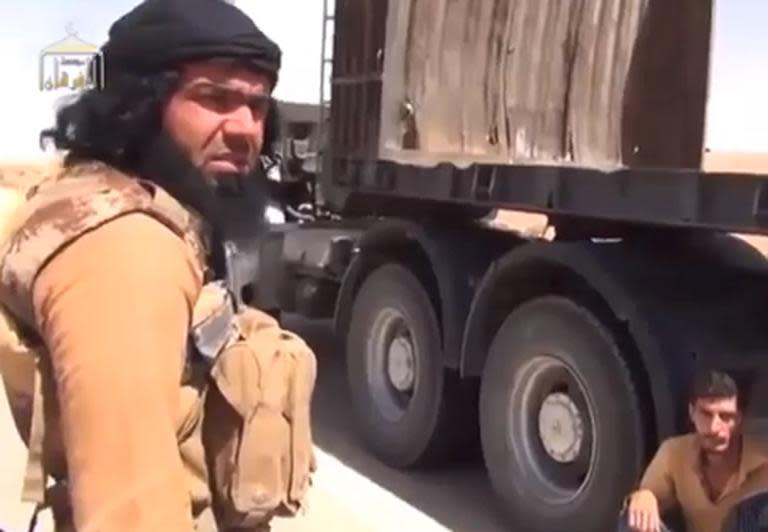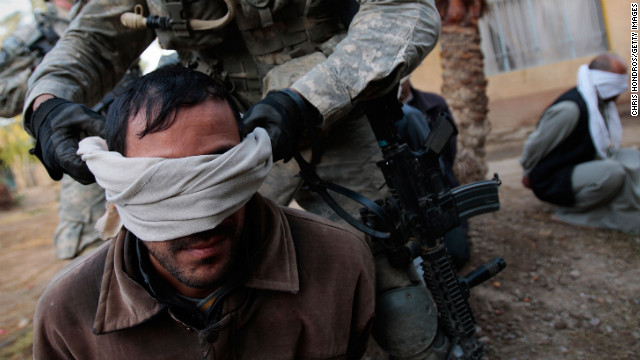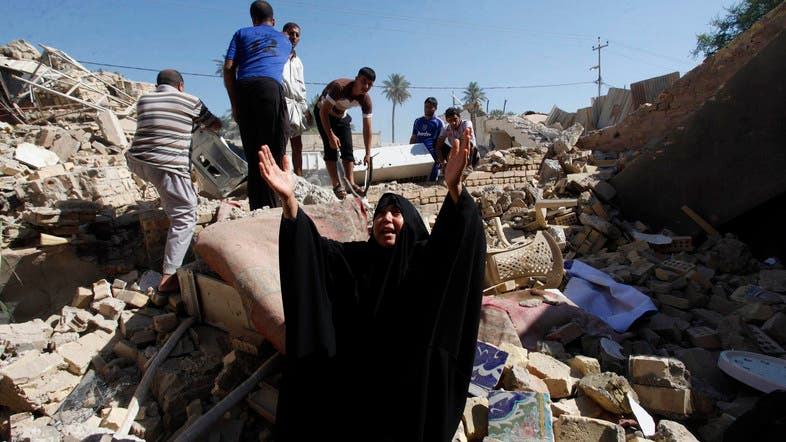
Violence elsewhere killed five policemen, including the police chief of Al-Sharqat district northwest of Baghdad, and wounded five others, police and a doctor said.

Five senior Iraqi officers, including a divisional commander, and 10 soldiers were killed Saturday in a raid on an Al-Qaeda hideout in the west of the country, military officers said.

Violence elsewhere killed five policemen, including the police chief of Al-Sharqat district northwest of Baghdad, and wounded five others, police and a doctor said.

Mohammed al-Karoui, the commander of the army’s 7th Division, was leading an operation to attack “hideouts of militants belonging to the Al-Qaeda organisation” in Sunni-majority Anbar province, which borders Syria.

He was killed along with four other senior army officers and 10 soldiers when they attacked a camp near Rutba, 380 kilometres (235 miles) west of Baghdad, the military officers said.

Soldiers were attacked by suicide bombers during the assault on the camp and hit by bombs that exploded when they entered buildings, the sources said, without specifying at what point the officers died.

The defence ministry said the operation was launched after reports that Al-Qaeda militants had set up camps in the area to train militants in bomb-making.
Intelligence indicated that “the Al-Qaeda terrorist organisation opened camps to train its terrorist elements to make bombs and explosive belts” as well as car bombs, and that more than 60 militants were present in the Wadi Huran region of Anbar province, the ministry said.

Reconnaissance flights pinpointed targets, which helicopters then attacked ahead of the ground assault.
Karoui’s unit was tracking fleeing suspects when a bomb exploded, killing the major general, the other officers and the soldiers, the ministry added.

Prime Minister Nuri al-Maliki, who also heads the armed forces, offered his condolences.
“These heroes… were carrying out the most noble battles against the enemies of God and humanity,” said Maliki.
“They are fighting battles daily” to protect Iraq and its people, he said.
Maliki also urged the armed forces “to strike with an iron fist… these malevolent gangs and track them down wherever they may be and eradicate them from Iraq”.

Two years after the US pullout, security forces have been struggling to curb violence that has surged this year to levels unseen since 2008, when Iraq was just emerging from a brutal sectarian conflict.

In November, Maliki travelled to Washington where he discussed with President Barack Obama how to “push back” Al-Qaeda, which has been blamed for the surge in violence, the US leader said at the time.

Maliki took along a wish list of US military hardware Baghdad says it needs to rebuild its armed forces which were battered in the 2003 US-led invasion.

A joint statement at the time said both sides agreed on the need “for additional equipment for Iraqi forces to conduct ongoing operations in remote areas where terrorist camps are located”.
In other violence Saturday, a bomb blast killed Al-Sharqat police chief Colonel Ahmed al-Battawi and wounded five policemen as they were on patrol northwest of Baghdad, police and a doctor said.
Another four policemen were killed in attacks on checkpoints in Fallujah, west of the capital, security officials said.
The Western desert province of Anbar borders war-torn Syria and is a bastion of Al-Qaeda.

France and Turkey have also offered to help Iraq battle the growing violence, where more people were killed in the first eight days of this month than in all of December last year.

Over 480 people have now been killed in violence so far this month, and more than 6,600 since the beginning of 2013, according to AFP figures based on security and medical sources.

Analysts say widespread discontent among Iraq’s minority Sunni Arab community is a major factor fuelling the surge in unrest.
The 33-month war in Syria, which has bolstered extremist groups, has also played a role.

And although the government has made some concessions aimed at placating Sunni Arabs, including freeing prisoners and raising the salaries of Sahwa fighters, underlying issues remain unaddressed.

No comments:
Post a Comment
Note: Only a member of this blog may post a comment.